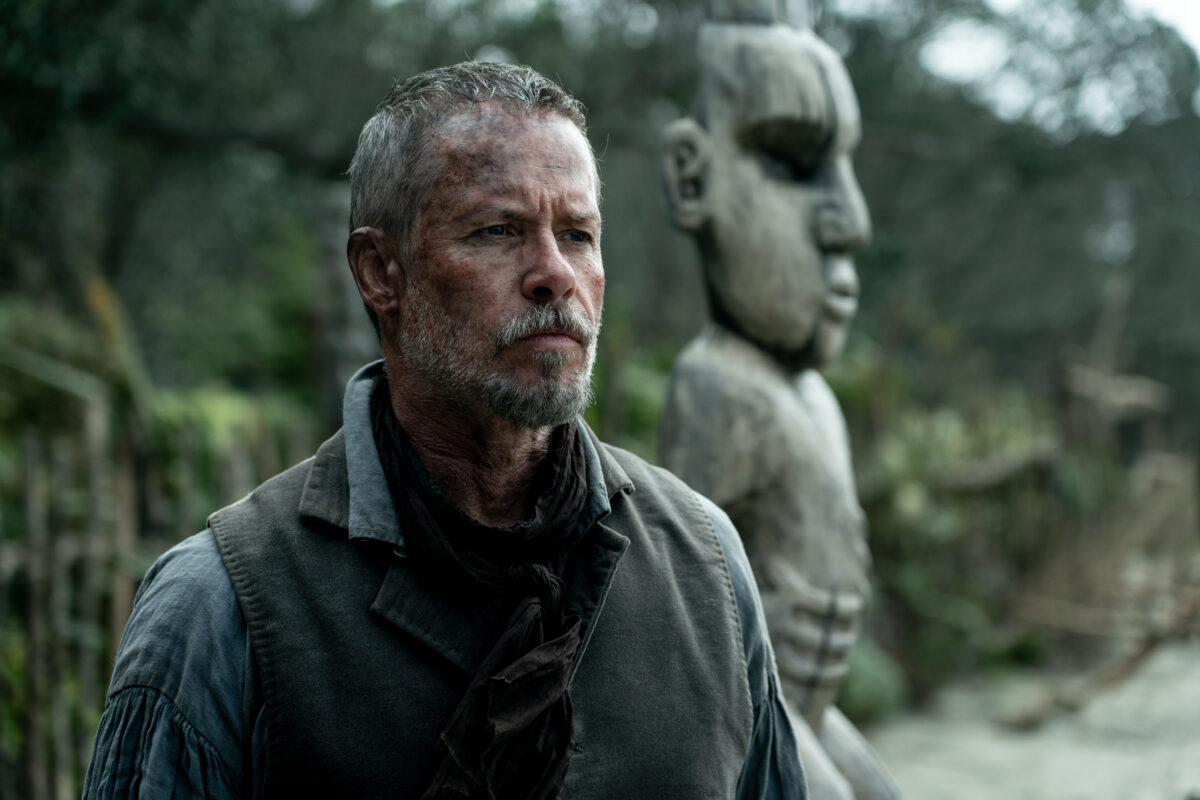There are films that defy expectations and there are those that turn those expectations upside down. Lee Tamahori’s “The Convert” is a movie that does both. Tamahori, a Maori/English filmmaker from New Zealand, burst on the scene in 1994 with “Once Were Warriors” about a violent Maori family. In “The Convert,” he returns to those roots to explore the relationship between early English settlers in pre-colonial (1830) New Zealand with their Maori “landlords,” and the ongoing battles between warring Maori tribes.
We meet Thomas Munro toward the end of what has been an interminable ocean voyage from England to New Zealand. A lay minister, he will be serving the small community of Epworth, English immigrants looking for a fresh start, much like him. The captain and crew of this many masted schooner have made this trip dozens of times, and now are also transporting the English educated son of a Maori chieftain back to his tribe.
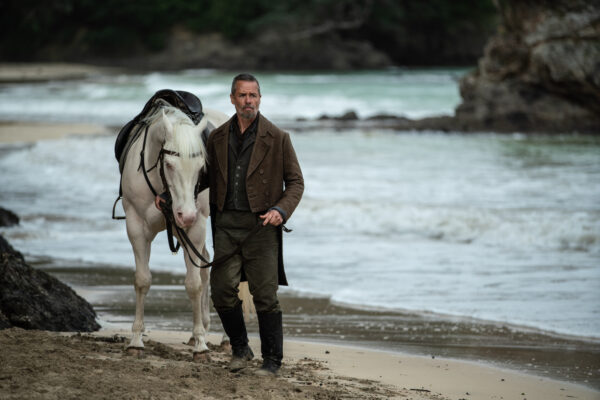
When the ship makes a brief stop to deliver the chieftain’s son, they witness a Maori couple from a rival tribe about to be slaughtered. Munro, horrified, begs for mercy on their behalf, offering his horse in exchange for their lives. The horse is only one thing and they are two; he must choose one. Shocked and speechless, Munro hesitates. In the flash of a dagger, the chief has the man summarily killed and offers up the woman. Shaken, he returns with the crew and girl to the ship. They make another stop to deliver the girl, Rangimai, to her family. Her father is the chief, and he asks Munro to take her to his village to be educated, providing a young bodyguard for her protection.
Munro finally arrives at Epworth, where he has been long awaited. These bastions of civilization have brought their traditions from England and only lacked officially sanctioned spiritual guidance. What these “Christians” also brought with them were their prejudices and superstitions. When Rangimai is in need of medical care, the town’s physician refuses to treat her; he’s not there for her kind. Munro is directed to the local outcast, a woman named Charlotte who is a skilled nurse of questionable character because of her ties to local Maori. Fluent in the local language, Charlotte becomes indispensable to the minister.
Munro traveled to the ends of the earth to escape the violence of the wars he fought in Europe. Surely in Aotearoa (New Zealand in Maori) he will be able to find peace. His first encounter with Maori disabused him of this naive theory. The idea of a paradise or Utopia is also smothered by the townspeople who have ruled this small patch of land without the laws of society, choosing some rules and rejecting others. When it comes to Maori, the veneer of respectability is, indeed, quite transparent. The laws of their so-called civilization do not apply even though they are dependent on the Maori for the very land they occupy, grudgingly paying rent for that privilege.
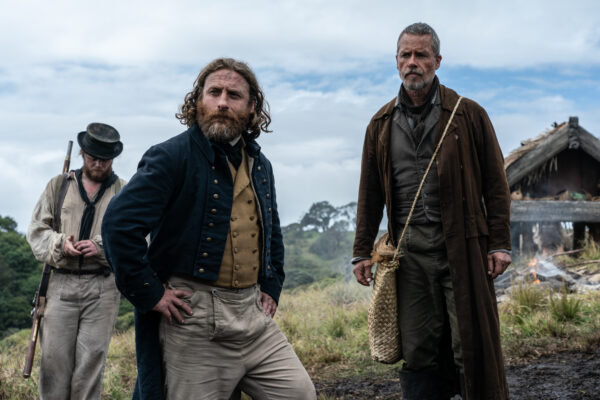
Munro is further dismayed to learn that English ships that ply these seas traffic in weapons; trading muskets for foodstuffs and woven goods to the various Maori tribes. Although the inter-tribal rivalries have continued for hundreds of years, the introduction of guns has elevated the stakes for everyone. Munro, having seen too much violence in his life, is determined to try to stop the flow of guns and negotiate a peace between the two main rivals. He is able to get a concession from Rangimai’s father, Maianui, that he is willing to try but Munro must convince Akātarewa, his adversary and the chieftain who ordered the murder of Rangimai’s husband. Therein lies the conflict because, as Akātarewa declares, peace can only be accomplished by war.
Munro has a major dilemma. It is assumed that most men of the cloth sent into new territories are there to minister to native populations and convert them to Christianity. Munro’s calling was to support and provide spiritual guidance to the white settlers. The more he comes to know them the more he sees the hypocrisy in their daily lives. Allegedly Christians, they follow the tenets of their God less than the so-called heathen Maori who abide by the rules of their culture, even in war. Who, he wonders, is he there to teach?
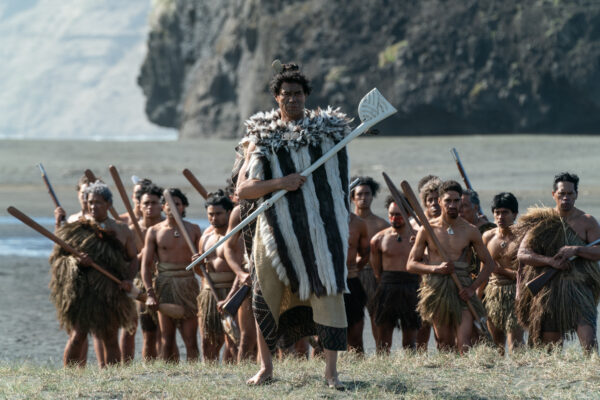
Through twists and turns of fate, Munro begins to see life more through the prism of the “uncivilized” than that of the townspeople and the sailors who return repeatedly to sell their muskets to the Maori factions. It is those very muskets, now supplanting the previous ceremonial axes and daggers, that have escalated the killing of those native to these harsh lands. This is what the white man and civilization have provided the Maori rather than a view to “godliness” and education. And when it comes to the citizens of Epworth, justice is a theoretical term applied only to themselves when convenient. They are incensed that Munro treats their inferiors as their equals. There are more twists and turns that follow in this surprisingly deep study of human nature.
Tamahori’s casting is outstanding, with all circling the universe of Guy Pearce as Munro. Pearce is marvelous, opening his insular character gradually and effectively; holding back enough so that you know what he’s feeling but not how he will react. Weathered, warm, wearing his past on his permanently furrowed brow, Pearce’s Munro is clearly searching for something untold; a man in conflict. Jacqueline McKenzie as Charlotte is allowed to grow over the course of the film, gradually letting Munro understand the pains she has suffered that are equal to his. A redheaded beauty who wears her scars openly, she is the antithesis of the denizens of Epworth, something they recognize and vilify her for.
Not exactly cardboard villains, the white residents are only present as a contrast to the natives on whose land they resentfully reside. Taking place just prior to the big English colonial push in the South Pacific, it is easy to see how these pioneers will gleefully resort to violence against their legitimate landlords once they have the backing of the military.
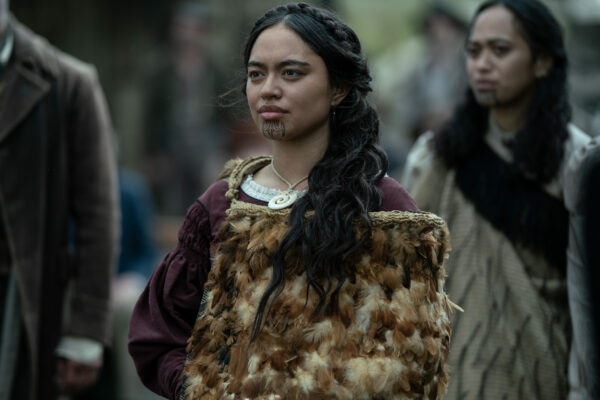
It is the casting of Maori actors that gives depth and interest to this story. Tioreore Ngatai-Melbourne gives Rangimai emotional complexity. She is both a grieving widow and a woman unafraid of the residents of Epworth, defying their expectations and silently learning their boundaries as she defies them. She is mesmerizing to watch, and a driving force of the action. As rivals, Lawrence Makoare as Akatarewa, the murderous leader of one faction is truly scary. His spontaneous violence and his ingeniously thought out war plans reveal why he is a wartime chief. Antonio Te Maloha as Malanui, father of Rangimai, thoughtful and more averse to violence, is both Akatarewa’s counterpart and opposite. Both, however, had the foresight to know that their heirs needed to be educated by the English in order to survive what they believe will be further encroachment. Their inevitable battle will decide their futures. The Maori actors, in general, are excellent and give us an insight to the culture they believe in. It is, Munro comes to realize, a culture steeped in history, layered nuance and violence. War, to them, is an elaborately choreographed dance that ends in death and destruction, winner take all.
Ginny Loane’s cinematography is exquisite. The colors are vibrant and she captures movement with her camera that literally sways in time to the action. The forests come alive with the depth of the hues and the motion on the seas is hypnotic. She films the violence graphically. Costuming and locations were meticulously researched.
Tamahori made a conscious decision not to translate all the Maori dialogue into English, leaving the viewer slightly off kilter trying to contextualize what is being said in those moments. Tamahori and Shane Danielsen, his co-writer, have given us a world of conflict and a view to what New Zealand (Aotearoa) was like prior to the advent of colonialism and the destruction of much of Maori culture, as violent as it might have seemed. Who, one could ask, was the more civilized?
In Maori and English with English subtitles.
Opening July 12 at the Lumiere Cinema at the Music Hall in Beverly Hills and On Demand.

